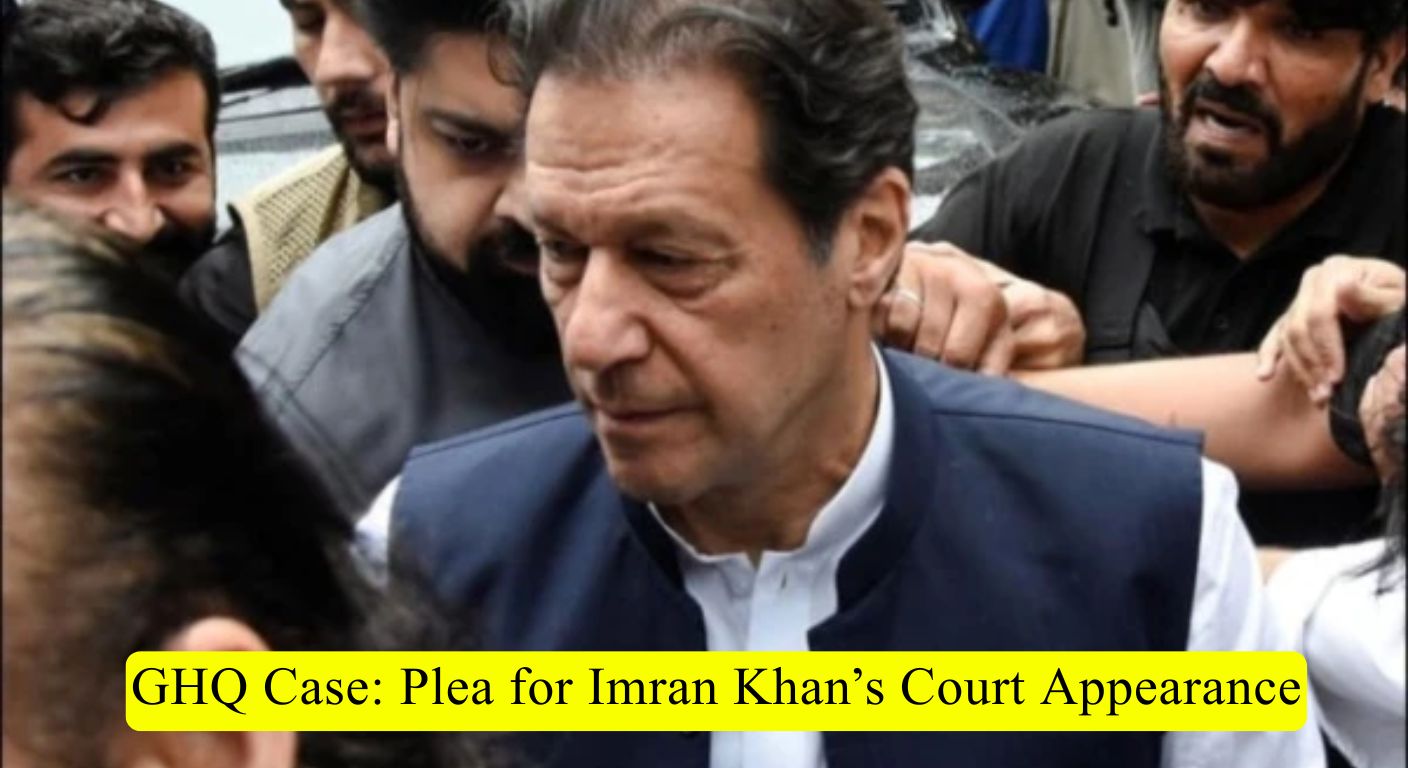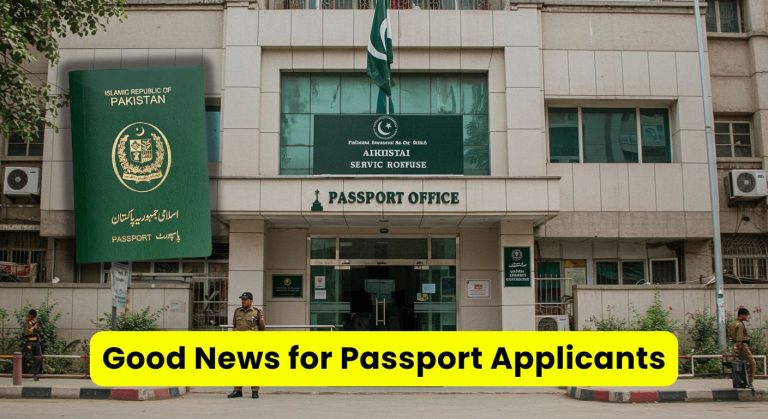GHQ Attack Case: Video Link Hearing Challenged, Request Filed to Produce Imran Khan in Court

Rawalpindi – September 2025:
The hearing of the GHQ attack case has once again sparked legal and political debate after the notification for a video link trial was formally challenged in court. Lawyers representing PTI’s founding chairman Imran Khan argued that a fair trial cannot be ensured through video link and filed a petition demanding his physical appearance before the Anti-Terrorism Court (ATC).
The case, which has remained in the spotlight for months, witnessed dramatic scenes as defense lawyers, prosecutors, and the court discussed whether technology-based hearings can replace traditional in-person trials under Pakistan’s Constitution.
Video Link Notification Challenged
According to details, the Home Department’s notification regarding a video link trial was strongly contested by Imran Khan’s legal team. Senior lawyers Faisal Malik Advocate and Barrister Ali Bukhari presented their arguments before the Rawalpindi ATC, claiming that the government move violates the constitutional right to a fair trial.
The court has admitted the challenge for hearing, and notices have been issued to the prosecution for a response. Defense lawyers made it clear that until the matter is decided, their client is unlikely to appear via video link.
Lawyers’ Arguments Against Video Trial
Faisal Malik Advocate explained that a trial without direct consultation between client and lawyers is unconstitutional. He said Imran Khan has refused to allow proceedings through video link, stressing that defense counsel cannot conduct the trial without confidential discussions with their client.
He further argued that:
- Video trials undermine fair trial rights under the Constitution.
- Lawyers must be able to meet and consult with their clients directly during proceedings.
- The use of technology in such sensitive cases cannot replace physical presence in court.
Barrister Ali Bukhari supported these claims, stating that a “trial through screens” is neither lawful nor practical, especially in a high-profile terrorism-related case.
Petition to Produce Imran Khan in Court
In a separate application, defense counsel requested that Imran Khan be physically present in court for transparency. Faisal Malik submitted that an in-person hearing is essential to maintain confidence in the judicial process, particularly in politically sensitive cases.
He pointed out that the video trial notification was delivered late on Thursday evening, leaving little time for preparation. Prominent lawyer Salman Akram Raja is expected to challenge the notification in the Rawalpindi Bench of the High Court, seeking relief against the order.
Court’s Response
The ATC carefully noted the defense objections and issued directions regarding transcripts of the video link proceedings. The court ruled that obtaining transcripts of video hearings will not be allowed, citing concerns over manipulation and authenticity.
The defense also warned that if the government attempted to forcefully conduct proceedings through video link, Imran Khan would refuse to participate.
Security Arrangements in Rawalpindi
The hearing day in Rawalpindi was marked by extraordinary security measures. More than 700 police personnel and officers were deployed around the ATC premises, supported by over 50 traffic police officials to ensure smooth traffic flow.
Several roads, including the route from the Commissioner’s Office to the District Council gate, were completely sealed. Parking was banned for lawyers, media vehicles, and DSNG vans, while entry into the court was strictly regulated. Even carrying mobile phones or recording devices inside the courtroom was prohibited.
The strict arrangements reflected both the sensitivity of the case and the government’s concern about potential unrest.
Witness Testimonies
On this occasion, the court had summoned three important witnesses. Out of a total of 119 witnesses, statements from 27 individuals have already been recorded. After a break of more than two and a half months, the process of recording testimonies resumed, underlining the slow yet ongoing progress of the GHQ attack trial.
The testimony of these witnesses is considered crucial in establishing evidence, especially as the case enters a decisive phase.
Reactions from PTI and Lawyers
The decision to conduct a video trial has been rejected outright by PTI leaders and Imran Khan’s family members.
- Aleema Khan, sister of Imran Khan, called the video trial “unconstitutional and illegal”, vowing not to accept it under any circumstances.
- Tabish Farooq Advocate also declared that lawyers will not allow the video link trial to proceed, and fresh petitions will be filed against it.
- Faisal Malik stressed that the only acceptable options are either producing Imran Khan in court or holding a transparent trial inside the jail premises.
These statements signal a clear and tough stance from the defense, which is expected to intensify legal battles in the coming weeks.
Political and Legal Significance
The GHQ attack case has long been one of the most sensitive terrorism cases in Pakistan. The attempt to shift toward a video link hearing reflects the government’s effort to manage security challenges while continuing the trial process.
However, the resistance from the defense and the broader PTI leadership underscores how such measures can raise questions about judicial independence and fairness. In politically charged trials, even minor procedural changes often attract major criticism and become flashpoints in the political discourse.
Legal experts suggest that if higher courts intervene, it may set a precedent on whether video link hearings can be imposed in terrorism and high-profile cases, or whether they must remain optional with the consent of the accused.
Public Interest and Media Restrictions
Media coverage of the case has been tightly controlled. Journalists were not allowed to freely park outside the court, and restrictions on video recording limited the flow of live updates. Still, the public remains highly interested in the proceedings, given the central role of Imran Khan in Pakistan’s political landscape.
The debate over video trials is not just a legal matter—it also touches on broader questions of transparency, accountability, and the right of the people to witness fair justice.
What Happens Next?
- The High Court Rawalpindi Bench will soon hear the petition challenging the Home Department’s notification.
- The ATC is expected to decide on whether Imran Khan must appear physically or if limited use of a video link can be allowed.
- Witness testimonies will continue, with dozens still pending before the final judgment.
As the case proceeds, both sides are likely to escalate their legal strategies. The defense aims to ensure physical court appearances, while the government emphasizes security and efficiency. The outcome will not only determine the course of the GHQ attack case but may also influence how sensitive trials are conducted in Pakistan in the future.
Conclusion
The GHQ attack case is once again in the spotlight after the video link trial notification was legally challenged. With defense lawyers insisting on fair trial rights and the government prioritizing security concerns, the case has turned into a critical test for Pakistan’s judicial system.
While short-term developments may revolve around witness testimonies and court orders, the larger battle is about setting the boundaries between technology, law, and fundamental rights. For Imran Khan’s supporters, the demand is simple: “Bring him to court.” For the government, the challenge is ensuring proceedings continue without compromising safety.






